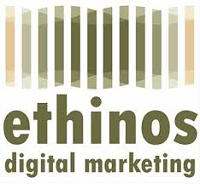Top Digital Marketing Tools Softwares
Digital Marketing Tools software empowers businesses to enhance their online presence and engage with target audiences effectively. These tools provide solutions for social media management, email marketing, SEO, content creation, and analytics. By leveraging these software options, marketers can streamline campaigns, optimize performance, and measure results. The diverse functionalities help adap... Read More
112 companies found
Product Description
Airtable is a flexible and user-friendly platform designed to help you manage and organize information with ease. Imagine a combination of a powerful spreadsheet and a robust database that you can customize to fit your specific needs. Whether you’re tracking projects, managing customer relationships, or coordinating events, Airtable offers a simple solution that can adapt to virtually any task. O... Read More
Users
- • No Data
Industries
- • No Data
Market Segment
- • No Data
Product Description
Admitad is designed to simplify the way you manage your online sales and marketing partnerships. Whether you’re an online retailer, a content creator, or a marketing professional, Admitad provides the tools you need to connect and collaborate effectively. Imagine having a single platform where you can find and manage partners, track your performance, and optimize your earning potential without g... Read More
Users
- • No Data
Industries
- • No Data
Market Segment
- • No Data
Product Description
Ahrefs is a powerful tool designed to help businesses improve their online visibility and understand their competition better. If you’re running a company and want to see how your website is doing compared to others, Ahrefs makes it easy. This software provides insights into how often your website appears in search results, which keywords are driving traffic to your pages, and even which other web... Read More
Users
- • No Data
Industries
- • No Data
Market Segment
- • No Data
Outreach.Buzz
Product Description
Outreach.Buzz is designed to make finding and connecting with influential voices easier than ever for your business. Whether you're looking to network with bloggers, journalists, or industry leaders, this software simplifies the process of discovery and collaboration. Imagine having a single platform where you can search for influencers in your niche, look into detailed profiles, and seamlessly ... Read More
Users
- • No Data
Industries
- • No Data
Market Segment
- • No Data
OutReachly
Product Description
OutReachly is a software solution designed to make managing outreach efforts smoother and more effective for businesses of all sizes. This tool simplifies the entire process of reaching out to potential customers, clients, or collaborators, helping your team save time and increase productivity. With OutReachly, you can organize and track all of your outreach activities in one place. The software ... Read More
Users
- • No Data
Industries
- • No Data
Market Segment
- • No Data
Product Description
Clinck is a versatile SAAS platform designed to simplify customer engagement and streamline sales processes for businesses of all sizes. Whether you're a small startup or a well-established company, Clinck offers an approachable way to enhance your relationships with clients and close deals more efficiently. At its core, Clinck provides tools that help you manage interactions with your customers.... Read More
Users
- • No Data
Industries
- • No Data
Market Segment
- • No Data
Dean Infotech
Product Description
At Dean Infotech, our focus is on making high-quality software solutions that grow and evolve with your business needs. We understand that running a business comes with a multitude of challenges, and our goal is to simplify those through intuitive, efficient, and reliable software. Our SaaS products are designed to be user-friendly, requiring minimal training so you can get started right away. Fr... Read More
Users
- • No Data
Industries
- • No Data
Market Segment
- • No Data
Product Description
Ethinos is a modern software platform designed to bring simplicity and efficiency to your business operations. With a focus on user experience and practical applications, Ethinos offers a range of tools tailored to meet diverse business needs. Whether you’re a small business owner or manage a larger enterprise, Ethinos helps streamline your workflows by centralizing key aspects of your operations ... Read More
Users
- • No Data
Industries
- • No Data
Market Segment
- • No Data
Product Description
Loomly is a user-friendly platform designed to help businesses and individuals manage their social media content more efficiently. It offers a straightforward and organized approach to planning, creating, and scheduling posts, making it a favorite among social media managers and marketing teams. What sets Loomly apart is its intuitive interface. You don't have to be a tech expert to navigate its... Read More
Users
- • No Data
Industries
- • No Data
Market Segment
- • No Data
Product Description
Audiense is designed to help businesses better understand and connect with their audiences through deep insights and meaningful data. It's all about making social data practical and actionable. By diving into audience structures, Audiense helps you discover key segments within your market, so you can tailor your approach to meet their specific needs and preferences. One of the standout features o... Read More
Users
- • No Data
Industries
- • No Data
Market Segment
- • No Data
What are the key features to look for in digital marketing tools?
When evaluating Digital Marketing Tools software, it's important to focus on features that enhance efficiency and effectiveness in executing marketing strategies. Here are some key features to consider:
Integration Capabilities
Digital Marketing Tools software should seamlessly integrate with existing systems and other marketing platforms. Integration enables the centralization of data and streamlines workflow processes, which allows for more cohesive campaign management and offers a better overview of marketing efforts.
Analytics and Reporting
A robust analytics and reporting feature is essential for tracking performance metrics and return on investment. With thorough analytics, marketers can track user behavior, campaign performance, and conversion rates. This data-driven approach aids in making informed decisions and adjusting strategies for optimal results.
Automation
Automation in Digital Marketing Tools software can save time and reduce manual effort. Key areas for automation include email campaigns, lead nurturing, social media postings, and customer segmentation. By automating repetitive tasks, marketers can focus more on strategic initiatives.
User-Friendly Interface
An intuitive and user-friendly interface is crucial for minimizing learning curves and maximizing productivity. Marketers, regardless of technical skill levels, should be able to navigate the software easily to manage campaigns and analyze data effectively.
Customer Segmentation
Digital marketing tools should offer sophisticated customer segmentation features. This allows marketers to target specific groups with tailored content and offers, increasing engagement and conversion rates. The ability to segment audiences based on various criteria such as demographics, behavior, and purchase history can enhance the personalization of marketing efforts.
Content Management
Efficient content management capabilities are vital for planning, creating, distributing, and tracking content. The software should support diverse content formats, enable scheduling, and allow for tracking engagement with the content. This capability ensures that content strategies remain organized and impactful.
SEO Tools
To enhance online visibility, SEO tools within Digital Marketing Tools software should help optimize content for search engines. These tools typically include keyword research, backlink tracking, and SEO auditing. Effective SEO integration can significantly boost organic traffic.
Social Media Management
Features for social media management should allow for the scheduling of posts across multiple platforms and provide analytics on engagement and reach. Through these capabilities, marketers can manage and monitor their social media presence effectively while gathering insights to refine their strategies.
Lead Management
Lead management features help track and manage potential sales leads. This capability includes lead scoring and nurturing options to efficiently move leads through the sales funnel. Proper lead management ensures that efforts are directed toward the most promising prospects, enhancing sales opportunities.
Multi-Channel Marketing
Digital Marketing Tools software should support multi-channel marketing by coordinating efforts across various mediums such as email, social media, and online ads. This ensures consistent messaging and a cohesive customer journey, leading to improved brand recognition and loyalty.
By allowing marketers to manage multiple channels from a single platform, multi-channel marketing capabilities facilitate an integrated approach to reaching audiences. Each feature enhances the capacity to implement comprehensive and results-driven digital marketing campaigns.
How can digital marketing tools improve your online presence?
Digital Marketing Tools software can significantly enhance your online presence by offering a suite of features that streamline and optimize various marketing tasks. These tools enable businesses to reach a wider audience efficiently while maintaining a consistent brand message.
Enhanced SEO Capabilities
Digital Marketing Tools software often includes comprehensive SEO capabilities. They help identify keywords that are relevant to your target audience, allowing your website to rank higher on search engine results pages. With better search visibility, your business can attract more organic traffic, which is crucial for bolstering your online presence. SEO analysis features also monitor your site's performance, providing insights into how your pages perform and where improvements can be made.
Social Media Management
Managing your brand's social media presence is made simpler with Digital Marketing Tools software. These tools provide the ability to schedule posts, track engagement, and analyze the performance of your social media accounts across various platforms. By regularly engaging with your audience and sharing content at optimal times, you can build a loyal following and increase brand awareness.
Content Marketing Optimization
Content is a cornerstone of digital marketing. Digital Marketing Tools software helps refine your content marketing strategy by analyzing what type of content resonates with your audience. It aids in creating engaging, informative, and tailored content that speaks directly to your users’ needs. Tools that offer analytic capabilities allow you to monitor the performance of your content, ensuring you consistently deliver high-value information.
Email Marketing Automation
The automation of email marketing campaigns is another powerful feature of Digital Marketing Tools software. By automating your emails, you can send targeted messages to segmented lists at the right time, improving open and conversion rates. Personalization features within these tools can tailor emails to meet the unique needs of each subscriber, fostering a stronger connection with your audience and improving overall engagement.
Analytics and Reporting
Digital Marketing Tools software often includes robust analytics and reporting functionalities. These allow businesses to track the performance of their marketing campaigns accurately. With real-time data and customizable reports, you gain clear insights into what strategies are working and which ones need adjustment. This empowers you to make data-driven decisions that can significantly impact your online presence positively.
Paid Advertising Management
Paid advertising is a critical component of a comprehensive online strategy. Digital Marketing Tools software provides capabilities to manage and optimize pay-per-click (PPC) campaigns, ensuring that your ads reach the right audience. With precise targeting and budget management features, these tools maximize your return on investment by getting the most out of your ad spend.
Lead Generation and CRM Integration
Effective lead generation and customer relationship management (CRM) are crucial for nurturing prospects. Digital Marketing Tools software integrates with CRM solutions to streamline lead management and follow-up processes. By capturing leads efficiently and maintaining organized customer interactions, businesses can increase their chances of converting leads into satisfied customers.
In summary, leveraging Digital Marketing Tools software can elevate your online presence by optimizing various marketing activities, offering detailed insights, and improving audience engagement through different digital channels.
What are the benefits of using digital marketing tools for small businesses?
Cost-Effective Marketing Solutions
Digital Marketing Tools software offers small businesses cost-effective solutions to reach their audience. Traditional marketing can be expensive, but digital tools provide options such as social media marketing, email campaigns, and online advertisements that are more affordable. This allows small businesses to allocate their resources efficiently and compete with larger companies without a huge marketing budget.
Enhanced Targeting and Personalization
One of the key advantages of Digital Marketing Tools software is the ability to target specific demographics. Small businesses can utilize these tools to hone in on their ideal customer base by analyzing data and user behavior. This enables them to craft personalized marketing messages, increasing the likelihood of engagement and conversion.
Improved Customer Engagement
Digital Marketing Tools software enables small businesses to engage with their customers in real-time. Through platforms such as social media and live chat tools, businesses can interact directly with their audience, address queries, and build relationships. This level of interaction can foster customer loyalty and prompt rapid feedback on products or services.
Data-Driven Decisions
Using Digital Marketing Tools software provides access to valuable analytics and insights, allowing small businesses to make data-driven decisions. By understanding customer behavior, campaign performance, and traffic sources, businesses can refine their strategies to maximize efficiency and improve results. Decisions based on concrete data help in minimizing risks and optimizing marketing efforts.
Scalability and Flexibility
The scalability of Digital Marketing Tools software is beneficial for small businesses looking to grow. As a business expands, digital marketing strategies and tools can be adjusted to accommodate new products, services, or markets. This flexibility ensures that marketing efforts align with business goals at all stages of growth.
Time Efficiency
Digital Marketing Tools software can automate repetitive marketing tasks, saving valuable time for business owners. Automation capabilities include scheduling social media posts, sending out email campaigns, and generating reports. By reducing the time spent on routine tasks, small businesses can focus on creativity and strategy.
Increased Online Presence
Utilizing Digital Marketing Tools software helps small businesses enhance their online visibility. With tools for search engine optimization (SEO), content marketing, and social media management, businesses can improve their rankings on search engines and attract more visitors to their sites. A strong online presence is essential in attracting and retaining customers in today's digital landscape.
Competitive Advantage
By leveraging Digital Marketing Tools software, small businesses can gain a competitive edge over those that rely solely on traditional marketing methods. Adopting digital tools enables businesses to stay current with marketing trends and techniques, ensuring they remain relevant in an ever-evolving market.
In summary, adopting Digital Marketing Tools software allows small businesses to market more effectively, engage their target audience, and make informed business decisions. These benefits provide an essential foundation for not only surviving but thriving in the competitive digital marketplace.
How Do Digital Marketing Tools Help in Tracking Website Performance?
Digital Marketing Tools software plays a crucial role in tracking the performance of a website. These tools provide insights that help businesses refine their marketing strategies effectively. Below are ways these tools aid in monitoring website performance:
Analytics and Reporting
Digital Marketing Tools software enables businesses to gather comprehensive data about their website traffic. By employing these tools, marketers can generate detailed reports that present insights on visitor demographics, behavior, and engagement. Analytics reveal which pages are popular, how visitors navigate through the site, and what actions they perform. This data is essential for understanding visitor interactions and improving user experience.
Traffic Sources Analysis
Understanding where your website visitors come from is vital. Digital Marketing Tools software helps in identifying traffic sources such as search engines, social media, direct visits, and referral sites. By analyzing this data, companies can allocate resources more effectively to focus on channels that drive the most traffic. This insight is invaluable for optimizing marketing spend and targeting efforts towards the most productive channels.
Real-time Monitoring
Digital Marketing Tools software gives marketers the ability to monitor website performance in real-time. Real-time data allows instant insights into how campaigns and promotions are performing, enabling prompt adjustments to improve outcomes. This immediate feedback is essential for identifying issues or opportunities as they arise, thus enhancing decision-making processes.
Conversion Tracking
Tracking conversions is a fundamental aspect of website performance analysis. Digital Marketing Tools software tracks actions that are considered valuable to a business, whether form submissions, purchases, or newsletter sign-ups. By tracking these activities, businesses can measure the success of their calls-to-action and campaigns, ultimately leading to improved conversion rates and customer acquisition strategies.
SEO Performance
Search engine optimization (SEO) is critical for online visibility. Digital Marketing Tools software assists in monitoring important SEO metrics, like keyword rankings, organic traffic, and backlinks. These metrics provide insights into how well the website ranks on search engines and what improvements are needed. By tracking these elements, businesses can optimize their content strategy to enhance their search engine presence.
User Experience and Engagement
Tools in this software category allow businesses to inspect user engagement through metrics such as bounce rate, average session duration, and page views per session. Understanding these metrics helps businesses adjust content, site layout, and navigation to enhance user experience. When users find a site easy to navigate and engaging, it often leads to increased retention and repeat visits.
Competitor Analysis
Some tools offer competitive analysis features, enabling businesses to benchmark their performance against industry peers. By analyzing competitors’ strategies and performance, firms can identify areas for improvement and capitalize on new opportunities. This strategic oversight helps businesses stay ahead in a competitive market by adapting and evolving their marketing tactics effectively.
Goal Tracking and Performance Benchmarks
Digital Marketing Tools software frequently includes the ability to set goals and benchmarks. By defining specific targets such as traffic increases or higher conversion rates, businesses can measure their progress towards achieving these goals. Continuous monitoring against these benchmarks enables companies to assess their performance accurately and make data-driven decisions for ongoing improvements.
In summary, Digital Marketing Tools software provides essential functionalities that aid in understanding and optimizing website performance through analytical insights and performance tracking. By leveraging these tools, businesses can refine their strategies to enhance user engagement and achieve better marketing outcomes.
What role do digital marketing tools play in social media management?
Digital Marketing Tools software is pivotal in social media management, facilitating planning, execution, and monitoring of marketing strategies across various platforms. These tools are integral for marketers looking to optimize their outreach and engagement on social media channels effectively.
Enhancing Content Scheduling and Publishing
Digital Marketing Tools software helps in the organized scheduling of posts, ensuring that content is published at optimal times for maximum engagement. Automated scheduling removes the manual hassle and allows for consistent posting, crucial for maintaining audience interest. Additionally, these tools often offer cross-platform scheduling capabilities, enabling marketers to manage multiple social accounts from a single interface.
Improving Content Creation and Curation
Creating and curating content that resonates with target audiences can be challenging. Digital marketing tools provide features for content creation, such as templates, design elements, or even image repositories that help in crafting visually appealing posts. For curation, these tools can pull in content from various sources, ensuring that marketers always have fresh and relevant material to share with their audiences.
Audience Engagement and Interaction
Effective social media management requires active engagement with followers. Digital Marketing Tools software offers functions for responding to comments, messages, and reviews across multiple channels. These tools also provide sentiment analysis to help marketers gauge the tone of audience interactions and respond appropriately, enhancing customer relations.
Monitoring and Analytics
Monitoring performance metrics is essential for understanding the effectiveness of social media strategies. Digital Marketing Tools software includes analytics to track engagement rates, follower growth, click-through rates, and other key performance indicators. Insight gained through these analytics can guide adjustments in strategy, helping marketers refine their approach to improve audience reach and engagement.
Competitor Analysis
Staying ahead in the digital space involves understanding competitor strategies. Some Digital Marketing Tools software offers competitor analysis features, allowing marketers to monitor competitor activities such as content performance, engagement levels, and follower growth. By assessing this data, businesses can identify gaps in their strategies or capitalize on untapped opportunities.
Brand Monitoring and Reputation Management
In a dynamic environment like social media, brand reputation can fluctuate rapidly. Digital Marketing Tools software helps track brand mentions, reviews, and feedback across social platforms. This monitoring allows for prompt responses to negative remarks and reinforces positive interactions, fostering a healthier brand reputation.
Trend Identification and Adaptation
Keeping pace with current trends is vital for staying relevant. Digital Marketing Tools software provides insights into trending topics and conversations, which marketers can leverage to ensure their content remains current and compelling. Adapting strategies to incorporate trending elements can significantly enhance engagement rates.
In summary, Digital Marketing Tools software is essential for efficient social media management, offering solutions for scheduling, content creation, engagement, monitoring, competitor analysis, brand management, and trend adaptation. These capabilities ensure that marketers maintain a robust presence across social channels, fostering deeper connections with their audiences.
How can Digital Marketing Tools software enhance email marketing campaigns?
Targeted Audience Segmentation
Digital Marketing Tools software empowers marketers to segment their audiences based on various criteria such as demographics, engagement history, and shopping behavior. By doing this, marketers can create personalized email marketing campaigns that resonate with different audience segments. Targeted segmentation ensures that the right message reaches the right person, increasing relevance and engagement rates.
Automation and Workflow Efficiency
With automation features, Digital Marketing Tools software streamlines the process of conducting email marketing campaigns. Automated workflows enable marketers to set up sequences of email messages that are triggered by specific actions or dates. This ensures consistent communication with subscribers without manual intervention, allowing marketers to focus on strategy and planning instead of routine tasks.
Personalization and Customization
Digital Marketing Tools software facilitates a higher degree of personalization in email marketing campaigns. By utilizing customer data and behavior analytics, these tools enable marketers to create customized content that appeals to individual preferences. Personalized emails often include the recipient's name, tailored subject lines, and content that reflects their past interactions with the brand, thereby increasing the likelihood of engagement.
Analytical Insights
Analytics and reporting capabilities are essential features of Digital Marketing Tools software. These tools provide detailed insights into the performance of email marketing campaigns, including open rates, click-through rates, conversions, and more. By analyzing this data, marketers can identify trends, measure success, and make informed decisions to optimize future email campaigns for better results.
A/B Testing Capabilities
Testing different versions of an email is vital to determine the most effective approach. Digital Marketing Tools software offers A/B testing capabilities, allowing marketers to experiment with various elements such as subject lines, images, and call-to-action buttons. By analyzing which version performs better, marketers can refine their strategies to enhance engagement and improve overall campaign effectiveness.
Enhanced Deliverability
Ensuring that emails reach the intended inbox is crucial for the success of any email marketing campaign. Digital Marketing Tools software includes features that improve deliverability rates by monitoring factors like sender reputation and compliance with email regulations. High deliverability ensures that marketing messages are not marked as spam, reaching the audience as expected.
Integration with Other Channels
Digital Marketing Tools software allows email marketing campaigns to seamlessly integrate with other marketing channels, such as social media and web analytics. This integration ensures a cohesive brand message and provides a comprehensive view of customer interactions across different platforms. It enables marketers to create a unified marketing strategy that enhances the overall effectiveness of their campaigns.
Retargeting Capabilities
Retargeting potential customers who did not convert during initial marketing efforts is made easier with Digital Marketing Tools software. By utilizing data from previous interactions, marketers can create targeted email campaigns aimed at re-engaging these users. This technique increases the chances of conversion by reminding potential customers of their previous interest.
Dynamic Content
Digital Marketing Tools software supports the use of dynamic content in emails. Dynamic content allows certain parts of an email to change based on the recipient’s profile or behavior. This feature ensures that emails are more relevant and engaging, as they appear to be personally crafted for each subscriber, enhancing the overall impact of the marketing effort.
What are the cost considerations when selecting digital marketing tools?
When evaluating Digital Marketing Tools software, understanding the cost implications is vital. Cost considerations impact the long-term value and effectiveness of the chosen tools. Here are some critical factors to weigh:
Initial Costs
Analyze upfront expenses, including setup fees, training, and integration. Some tools demand a significant initial investment, while others offer low-cost or free trials. Understanding these costs helps in budgeting effectively.
Subscription Models
Most Digital Marketing Tools software operates on a subscription basis. Consider the pricing tiers, which often differ based on features and user capacity. Monthly and annual payment options might offer varied pricing. Annual plans usually come at a discounted rate compared to monthly subscriptions.
Hidden Costs
Beyond apparent expenses, hidden costs may arise. These can include customer support fees, additional feature charges, and third-party integration costs. Scrutinizing the contract terms of Digital Marketing Tools software can uncover these hidden financial obligations.
Scalability Costs
As your business grows, so might your need for expanded digital marketing capabilities. Assess whether the Digital Marketing Tools software offers scalable solutions without exorbitant price hikes. Scalable solutions should provide flexibility without causing budgetary concerns.
ROI Metrics
Consider foreseeable ROIs when selecting Digital Marketing Tools software. Understand how these tools can drive revenue or reduce costs through improved efficiencies. Calculate the potential return by examining analytics and performance reports provided by the tool.
Total Cost of Ownership (TCO)
TCO encompasses all costs associated with the software over its lifecycle. This includes training, maintenance, updates, and operational costs. Evaluating the TCO allows for a comprehensive understanding of long-term financial commitments, avoiding unforeseen expenses.
Licenses and Users
Some tools charge per user or license. It's critical to project how many licenses are necessary for effective operation. Consider future growth, ensuring that additional licenses won't strain resources.
Integration Costs
Digital Marketing Tools software often requires integration with existing systems. Integration might necessitate extra costs due to complexity or third-party service fees. Factoring in these costs ensures seamless functionality within your digital ecosystem.
Cost-Effectiveness
Balancing cost against features is essential. High-cost tools may not always yield superior results. The value obtained should justify the expenditure, aligning with business goals and delivering tangible outcomes.
Trial Periods and Freemium Models
Evaluate available trial periods or freemium models offered by Digital Marketing Tools software. These opportunities provide insights into functionality without an immediate financial commitment. Make full use of these options to assess compatibility with your needs.
Negotiation Opportunities
Negotiating pricing structures can lead to favorable terms. Engage with vendors to discuss possible discounts, package deals, or customized pricing options. This approach can reduce costs while meeting specific requirements.
Carefully considering these cost factors when selecting Digital Marketing Tools software will aid in making informed investment decisions.









